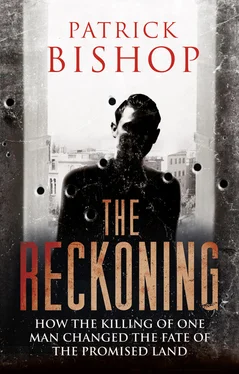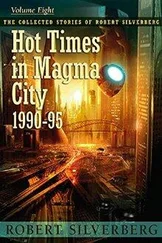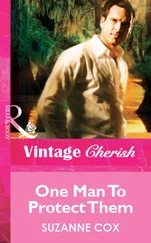Stogs boys were expected to stay until they were at least sixteen, when they sat for the School Certificate, which was an essential requirement for a halfway decent job. He never explained the early departure, but it is unlikely that money was the problem. The school fees were modest and the family’s circumstances were comfortable enough to fund Marion’s education through school and university. The likeliest reason was that there seemed little point, to parents and teachers, perhaps to Geoffrey himself, in staying on.
Without his ‘school cert’ he could expect only a dead-end job. He found one at the meat and poultry market at Smithfield in the City of London, where, each day, from the early hours, porters in bloodstained overalls humped carcasses from cold stores to butchers’ vans. He worked as a clerk for a provisions merchants, no more than a ‘general dogsbody’ he would say later. 7
At some point he quit Smithfield and started work as a low-level manager with his father’s firm, United Dairies. It was scarcely more rewarding than clerking. He soon decided that his ‘future lay elsewhere’ but where exactly he had no idea.
In the early summer of 1926, chance pointed him in the right direction. Beyond the dairy walls, a great national crisis was brewing. Britain was in the throes of a social upheaval that seemed to some the prelude to a possible revolution. In May, the General Council of the Trades Union Congress called a general strike in an attempt to block proposals to cut miners’ pay and increase their hours. Nearly two million workers responded. The government set up volunteer units to maintain essential services. Tens of thousands of conservative-minded males stepped forward to do their bit to keep the country running, including Geoffrey Morton.
When the strike was announced he joined one of the expanded special police units that sprang up to assist the forces of law and order. They were untrained, unarmed save for a whistle to summon help and wore civilian clothes with only an armband to denote their authority. On the second day of the strike he turned up at the nearest police station and awaited instructions. The main drama of the day was an attempt by strikers to blockade the London County Council tramcar depot at Camberwell Green and paralyse local transport. One tram had managed to break through and travel half a mile to the Elephant and Castle, a busy road junction. It had been halted by pickets and Morton and a ‘burly constable’ were sent to the scene of the trouble.
When they arrived, he wrote, they found ‘a large crowd of men – several thousand of them – centred around a stationary tramcar to which they had clearly conceived a marked antipathy. All professional transport workers were on strike, so that the presence of the tram meant that it must be manned by volunteers – or blacklegs as the strikers would have called them.’ 8
Morton ‘saw smoke and flames rise from one end of the vehicle, to be greeted by an ironic cheer from its attackers’. Preoccupied by the spectacle of the burning tram, the strikers had not noticed the pair arrive. Despite the number present, Morton’s hefty companion ‘wasted no time. He did not trouble to draw his baton, but with a verve and determination which should assuredly have earned him his cap for England at Rugger, started to elbow his way through the mob towards the tram, with the strikers giving way right and left beneath the impetus of his progress.’
Morton followed in the constable’s wake, ‘safe in the vacuum created by his passage’. As the crowd registered the arrival of the police, the missile-throwing faltered. One man remained oblivious, and ‘brought his arm back over his shoulder, nearly hitting my policeman on the nose as he did so, and launched a bottle containing a colourless fluid at the tram. As the missile flew from his hand some instinct must have warned him of impending danger for, with a look of horror on his face, he turned his head and saw the huge bulk of the constable towering over him.’ The rioter blurted out an apology only to be ‘answered by a laconic: “Too late, mate!”’ The constable’s baton, ‘which had materialised as if by magic, came down smartly on the bottle-thrower’s unprotected left shoulder. In another second he had disappeared behind us, the baton was back in its pocket and we were on our way once more.’ Soon reinforcements arrived, the rioters were dispersed and order was restored.
Despite the jaunty tone of this account, the incident made a deep impression. Writing many years later, after a long and incident-packed police career, Morton declared he had ‘never anywhere witnessed a more effective display of sheer police sense than that given by that ordinary, uniformed, duty constable in dealing with that mob’. The arrival of reinforcements had relieved him of the need for a further display of initiative but Morton was convinced that ‘had they not arrived I am sure that my friend was prepared, as a simple matter of duty, to place himself squarely between the tram crew and the rioters, who would only have got at their intended victims over his dead body’.
The episode had given him an intoxicating taste of the possibilities of police work. It offered power, a whiff of danger, opportunities for heroics in the discharge of duty, and above all adventure and a way out of the tedium of his current existence.
When the strike ended after nine days in utter defeat for the trade unions, Geoffrey stayed on in the ‘specials’. Nothing he did subsequently, though, matched the excitement of those first days. During the next three years of service he carried out mundane police duties, doing well enough to rise to the rank of sergeant. He was still stuck in his boring job. Every day he scanned the small ads in the newspaper looking for a way out, but the prospects of finding one were dwindling. At the end of 1929 the Great Depression settled on the country and millions were out of work.
In the late summer, advertisements began to appear calling for recruits to the Palestine Police Force. The anti-Jewish rioting of August had demonstrated the urgent need for more British officers. The Colonial Office was offering adventure, comradeship, sport and sunshine and an absence of academic qualifications was no handicap. It seemed the answer to Morton’s prayers. ‘The more I thought about it,’ he wrote, ‘the more I was convinced that this was the job for me. It had everything, and surely I had quite a lot to offer in return – I was fit and strong, reasonably literate and willing to learn.’ 9
He set off to apply in person at the offices of the Crown Agents for the Colonies at Number 4, Millbank, Westminster, overlooking the Thames. He left after a brief interview with ‘an acute feeling of depression’. Preference was being given to ex-servicemen and being a sergeant in the specials did not compensate for his lack of military experience.
The walk home through the dreary streets of autumnal south London only intensified his determination to escape. A few months later more recruiting ads appeared. This time Morton did not apply in person but simply sent for the application forms, and filled them in with no mention of the previous setback. He was summoned for a brief interview and a medical, both of which he passed. He was in. On a bitterly cold morning in February 1930, together with twenty-nine other embryo policemen, he set sail from Southampton for Port Said, Egypt. The boat was the Esperance Bay . It was, he said later, a good name. ‘Esperance’ meant ‘hope’, the spirit sustaining all of them as they headed off to their new lives. 10
The force they were joining had an exotic, frontier feel. They wore the kalpak, a high-crowned astrakhan cap, a legacy of the Ottoman era, and the rural sections patrolled the dusty fields, parched hills and stone-walled villages of the territory on horseback. The British contingent contained a high proportion of adventurers and risk-takers. It seemed to some of its members that they had joined a sort of British version of the French Foreign Legion, whose ranks were filled with men who had enlisted to escape or forget.
Читать дальше












